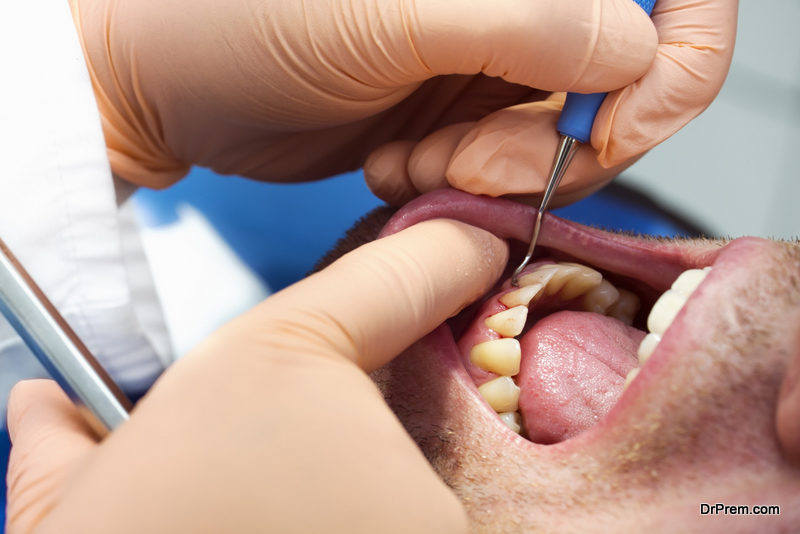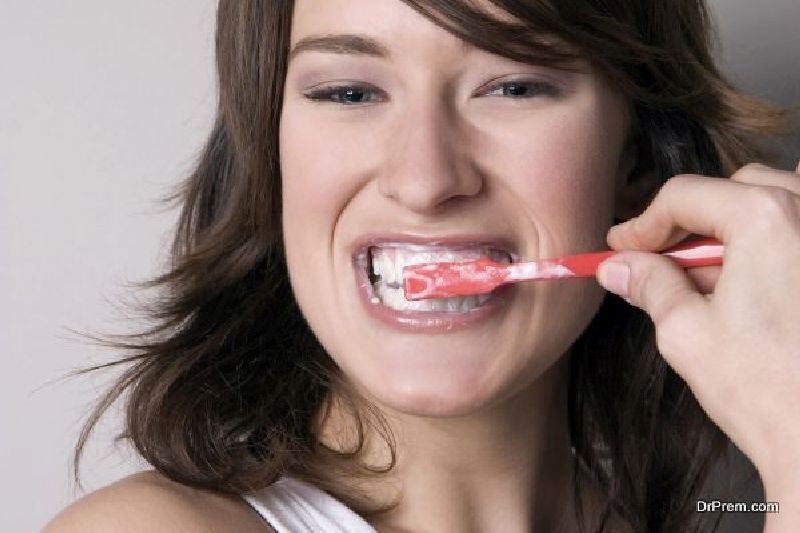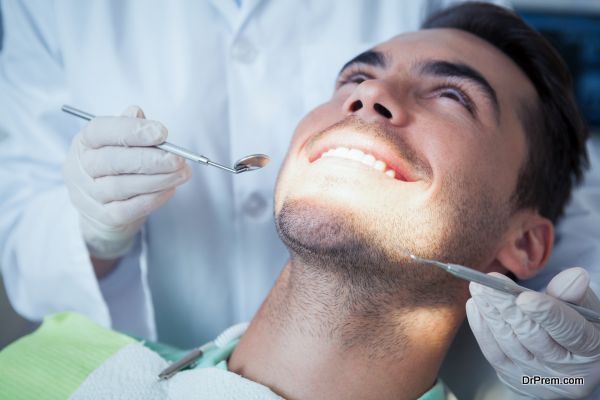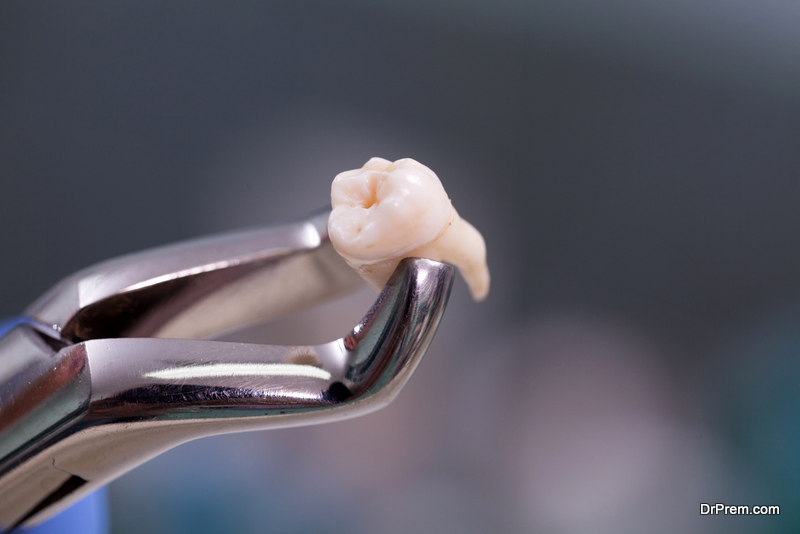When you’re a small child, you can’t wait to lose your first tooth! It’s a special occasion marked by money under your pillow and a goofy grin that lasts until your adult tooth grows in. But as you age, losing your teeth is usually a sign of something less positive. And tooth loss isn’t just reserved for senior citizens who need dentures. A lot of things can occur between adolescence and retirement age that might result in tooth loss. Here are a few risk factors for tooth loss and how to handle them.
1. Being a Man
 When it comes to your health, many people argue that women have it tougher. After all, they’re the ones who endure childbirth and monthly menstrual cycles. In many cases, men seem to “get off easy.” But this isn’t the case when it comes to oral health or tooth loss. The fact is, men are at greater risk for losing their teeth than women. Why? One reason might surprise you. Studies show that women are more proactive than men when it comes to their dental hygiene. This means men are more likely to get complacent about brushing, flossing, and visiting the dentist regularly.
When it comes to your health, many people argue that women have it tougher. After all, they’re the ones who endure childbirth and monthly menstrual cycles. In many cases, men seem to “get off easy.” But this isn’t the case when it comes to oral health or tooth loss. The fact is, men are at greater risk for losing their teeth than women. Why? One reason might surprise you. Studies show that women are more proactive than men when it comes to their dental hygiene. This means men are more likely to get complacent about brushing, flossing, and visiting the dentist regularly.
Furthermore, women are also more prone to schedule required follow-up appointments and address any discomfort or concerns before they become too serious. The best way to combat these statistics, men? Don’t neglect your oral hygiene!
2. Disregarding Dental Hygiene
That brings us to the next point. While women, in general, are more proactive about their dental health, it doesn’t mean women are exempt. Anyone who neglects their oral health is at risk for a long list of complications including gum disease, cavities, tooth decay, and ultimately, tooth loss. The basics of dental hygiene are likely things you’re already doing (or should be).
Brushing
 Brushing your teeth twice a day is dental hygiene 101! You should brush your teeth before bed each night. This helps remove plaque and food debris, which, if left on your teeth, can cause tooth decay and cavities. Most people brush their teeth every morning to ensure fresh breath. But this is also another good habit to get into. Be sure to invest in a brush with bristles that are right for your teeth and gums. Something too hard might damage your gums, while bristles that are too soft may not clean properly. Take the guesswork out of the process and invest in an electric toothbrush.
Brushing your teeth twice a day is dental hygiene 101! You should brush your teeth before bed each night. This helps remove plaque and food debris, which, if left on your teeth, can cause tooth decay and cavities. Most people brush their teeth every morning to ensure fresh breath. But this is also another good habit to get into. Be sure to invest in a brush with bristles that are right for your teeth and gums. Something too hard might damage your gums, while bristles that are too soft may not clean properly. Take the guesswork out of the process and invest in an electric toothbrush.
Flossing
Flossing helps remove build-up plaque, food particles, and debris that your toothbrush simply can’t reach. Regardless of how diligent you are about brushing, the surface of your tooth is made up of many different grooves. Not to mention the spaces between your teeth which are simply too narrow for your brush’s bristles to reach. It’s recommended you floss after brushing, but at minimum, floss once a day before bed.
Check-Ups
 Dental check-ups are another basic but very important part of your oral healthcare routine. Most insurance companies cover two cleanings per year (spaced 6 months apart). During the cleaning, the dental hygienists will remove built on plaque (tartar) that’s nearly impossible for your brush or floss to get. They will also professionally clean your teeth and may take X-rays. The dentist checks for any abnormalities in your mouth and addresses any questions or concerns you might have. A dental check-up is the best way to detect and help treat any underlying conditions before they turn serious.
Dental check-ups are another basic but very important part of your oral healthcare routine. Most insurance companies cover two cleanings per year (spaced 6 months apart). During the cleaning, the dental hygienists will remove built on plaque (tartar) that’s nearly impossible for your brush or floss to get. They will also professionally clean your teeth and may take X-rays. The dentist checks for any abnormalities in your mouth and addresses any questions or concerns you might have. A dental check-up is the best way to detect and help treat any underlying conditions before they turn serious.
3. Having Pre-Existing Conditions
Believe it or not, certain illnesses might put you at greater risk for tooth decay and tooth loss. And these conditions sometimes have nothing to do (directly) with your dental hygiene. Here are a few of the most common conditions that might cause tooth loss.
Arthritis
 Tooth loss and rheumatoid arthritis go hand-in-hand for some people. Studies show that patients suffering from rheumatoid arthritis are at greater risk for developing gum disease and vise versa. If you’ve experienced tooth loss due to gum disease, it could be an indicator for the future development of this type of arthritis.
Tooth loss and rheumatoid arthritis go hand-in-hand for some people. Studies show that patients suffering from rheumatoid arthritis are at greater risk for developing gum disease and vise versa. If you’ve experienced tooth loss due to gum disease, it could be an indicator for the future development of this type of arthritis.
In fact, the more teeth you lose, the worse your condition might be. Joint inflammation is usually detected in patients with fewer teeth. While the presence of one doesn’t always guarantee the onset of another, the correlation between gum disease and rheumatoid arthritis is difficult to ignore.
Diabetes
More than 23 million Americans are currently dealing with diabetes. And of these, 22% suffer from periodontal disease. Periodontal disease is an umbrella term used to describe infections to the structures of the teeth. This includes gums, ligaments, and bones. The earliest stage of periodontal disease is gingivitis (also known as gum disease). But what’s the connection? People with diabetes have a difficult time maintaining healthy blood sugar levels.
This, in turn, makes it difficult for their body to fight off infections — including infections of the mouth. Another factor is that high levels of sugar in a diabetic person’s saliva, creates bacteria, leading to infections. Left untreated, these conditions can easily cause tooth decay and tooth loss.
4. Smoking
 With millions of cigarette smokers around the world dying every day due to nicotine related illnesses, including cancers and heart disease, you’d think smoking would be a thing of the past. Sadly, it’s still as popular as ever. And it does more to your body than just cause yellow skin and nails and a nasty cough. Smoking can actually compromise your oral health as well.
With millions of cigarette smokers around the world dying every day due to nicotine related illnesses, including cancers and heart disease, you’d think smoking would be a thing of the past. Sadly, it’s still as popular as ever. And it does more to your body than just cause yellow skin and nails and a nasty cough. Smoking can actually compromise your oral health as well.
Did you know that smokers are 3.6 times more likely to lose their teeth than nonsmokers? Similar to diabetics, smoking also accelerates periodontal disease. Another interesting fact is that smoking can actually make it difficult for your dentist to detect bleeding gums, which is an early sign of gum disease. Because this warning sign goes unnoticed, patients are at higher risk for more complicated dental health issues.
The bottom line is, if you want to maintain a healthy, beautiful smile, it takes work. While some medical conditions that are out of your control might impact your oral health, practicing basic dental hygiene goes a long way in terms of preventing tooth loss. The good news is, if you’ve already suffered lost teeth, you have options for restoring your smile. You can learn more about those here. In the meantime, take the necessary steps to support your oral health by brushing, flossing, and scheduling regular cleanings. Ditch the cigarettes, too, and trade them for a toothbrush! Your smile will thank you.
Article Submitted By Community Writer




